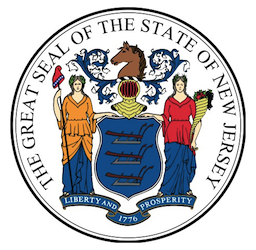Governor Chris Christie Issues Directive to Lift Ban on Sports Betting in New Jersey
In a surprise move Monday, New Jersey Governor Chris Christie issued a Law Enforcement Directive through his Acting Attorney General John Hoffman announcing that it will no longer be illegal for the state’s racetracks and casinos to accept sports wagers. The only restriction the directive places on sports betting is that bets may not be made on any collegiate sporting events that take place in the state, nor can any bets be accepted on collegiate contests involving New Jersey schools such as Rutgers, no matter where the event actually takes place.
The decision by Governor Christie is thought to be a way to throw a lifeline of sorts to the state’s casinos, which have been steadily losing customers and revenue to competing gambling venues in neighboring states. Three of Atlantic City’s casinos – Showboat, Atlantic Club, and the two-year old Revel – closed this year and the Trump Plaza is set to follow suit this month. And today, Trump Entertainment Resorts announced that it has filed for Chapter 11 bankruptcy and that it will likely close its Trump Taj Mahal casino in November. Atlantic City began the year with a dozen casinos and may very well end 2013 with just seven. Allowing the casinos to open sports books would not only give them a new revenue stream, but also increase revenue from other gambling, entertainment, dining, and shopping sources as sports bettors who would have otherwise not gone to one of the casinos make the trip to wager on sporting events.
It may seem strange that there is no sports betting in Atlantic City, the traditional gambling capital of the east coast, but the Professional and Amateur Sports Protection Act of 1992 (PASPA) banned sports betting in all states except for Nevada, Oregon, Montana, and Delaware, which were granted grandfather exclusions. The states with legalized casino gambling were given a one-year window to add themselves to the exceptions list, but New Jersey declined.
In 2011, though, New Jersey voters passed a referendum that would have legalized sports betting in the Garden State. The four major professional sports leagues in the U.S. – the National Football League (NFL), National Basketball Association (NBA), Major League Baseball (MLB), and the National Hockey League (NHL) – plus the National Collegiate Athletic Association (NCAA) took exception to this and sued the state of New Jersey, arguing that the law, the Sports Wagering Act, was in violation of PASPA. In the lawsuit, they stated, “The sponsorship, operation, advertising, promotion, licensure and authorization of sports gambling in New Jersey would irreparably harm amateur and professional sports by fostering suspicion that individual plays and final scores of games may have been influenced by factors other than honest athletic competition.”
A federal district court sided with the sports leagues and sports betting in New Jersey remained against the law.
Some media outlets have speculated that the sports leagues will once again challenge New Jersey to block sports betting once again, but that will not necessarily happen. Last Thursday, first-year NBA Commissioner Adam Silver told an audience at the Bloomberg Sports Business Summit that he would gladly embrace expanded sports betting in the United States. “It’s inevitable that, if all these states are broke, that there will be legalized sports betting in more states than Nevada. We will ultimately participate in that.”
“If you have a gentleman’s bet or a small wager on any kind of sports contest, it makes you that much more engaged in it,” he added. “That’s where we’re going to see it pay dividends. If people are watching a game and clicking to bet on their smartphones, which is what people are doing in the United Kingdom right now, then it’s much more likely you’re going to stay tuned for a long time.”
The timing of the directive is interesting, as just a month ago Governor Christie vetoed a bill that would have legalized sports betting. The bill, SB 2290, was passed overwhelmingly in the state legislature, with the Senate approving it by a 38-1-1 vote and the Assembly voting 63-6-11 in favor. In vetoing the legislation, Christie referred back to the court rulings against New Jersey’s attempts at sports betting, writing, “While I do not agree with the Circuit Court’s decision, I do believe that the rule of law is sacrosanct, binding on all Americans. That duty adheres with special solemnity to those elected officials privileged to swear an oath to uphold the laws in our nation.”

MGM Grand Sports Book
Image courtesy: MGM Grand
The basis for the directive actually comes from the apparent loss in federal district court (and the subsequent loss in the United States Court of Appeals for the Third Circuit) that New Jersey suffered when the sports leagues brought suit in 2012. Christie and the state argued that PASPA was unconstitutional, but the court ruled there was nothing unconstitutional about it. In the directive, John Hoffman used that ruling to justify the new permission of sports betting, writing, “In September 2013 that court upheld the constitutionality of PASPA on the basis that it does not require States to maintain existing laws and thus does ‘not prohibit New Jersey from repealing its ban on sports wagering.’”
Going further, Mr. Hoffman explains that the court ruled that New Jersey could not license entities for sports betting or explicitly authorize sports betting, but there was a specific clause put into the Sports Wagering Act that says, in essence, that if any part of the act is deemed invalid, it does not mean that the entire act is invalid. At the same time, part of the Sports Wagering Act repeals the prohibition against sports betting at casinos and racetracks. Thus, even though a sports betting licensing regime was struck down by the court, the repeal of the sports betting prohibition was not. And though New Jersey is not allowed to issue sports betting licenses, it can simply lift the sports betting prohibition and allow casinos and racetracks which are currently licensed for gambling to open sports books. It is thoroughly confusing, but extremely clever.



















It is indeed clever. The problem is that the legal system generally frowns on clever.